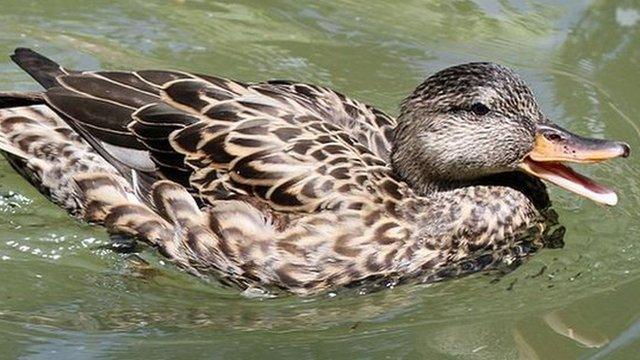Alderney campaign to protect ringed plover birds
- Published
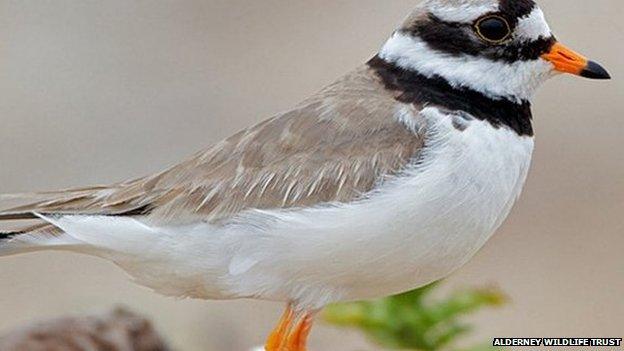
Platte Saline is the last breeding colony of the ringed plover in the Channel Islands
After just six ringed plover chicks reached adulthood in six years, wildlife experts have urged the public to avoid nesting sites.
Tim Morley from the Alderney Wildlife Trust said human interference had a major impact on the only Channel Island breeding site for the birds.
He said in 2013 three of the chicks reached fledging age and one nest had already been seen this year.
He said if the issues continued they would consider fencing off the area.
Platte Saline in Alderney is home to the only known regular breeding population of ringed plovers in the Channel Islands.
Breeding season is from late April to July and the birds nest at the high tide line on the beach.
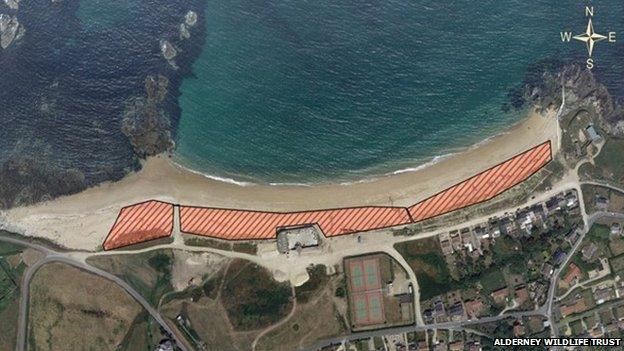
Alderney Wildlife Trust has asked people to avoid the birds' breeding sites along Platte Saline
Mr Morley said they create a scrape in the sand just above the high tide line. In this scrape they lay three or four eggs that are very difficult to see as they are well camouflaged.
He said: "We are calling on all users of Platte Saline to look out for these birds and consider avoiding the high tide line, keeping dogs to the lower beach and walking away if they see one of the birds."
The trust is currently reviewing the island's bird protection laws for the States. This sets out measures to protect bird populations, including beach closures.
Mr Morley said: "We have discussed other protection measures, such as fencing around breeding area, but currently feel that a community supported public awareness campaign will go a long way to the protection of the ringed plovers.
"If the adults are disturbed too often then eggs are not regularly incubated or chicks brooded. This can cause poor growth or even death through hypothermia.
"By disrupting the adults then natural predators also have greater opportunities to take the eggs/chicks."
- Published14 April 2014
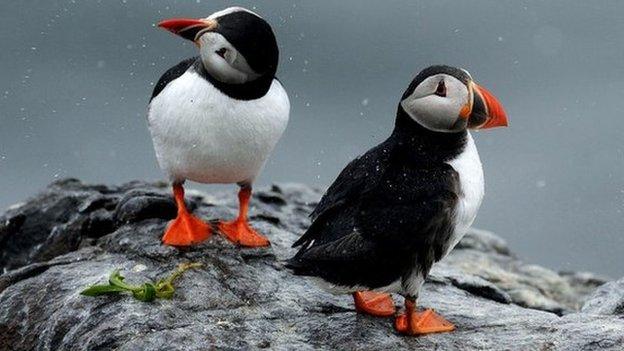
- Published31 March 2014
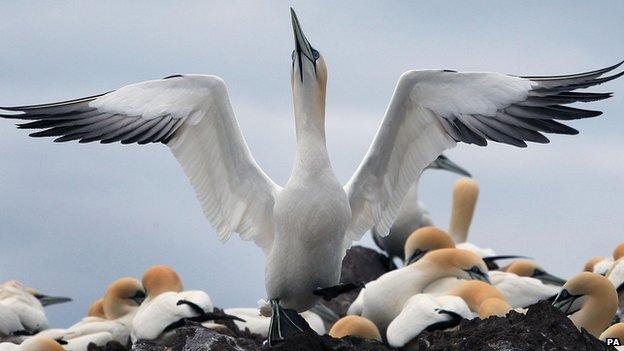
- Published11 March 2014
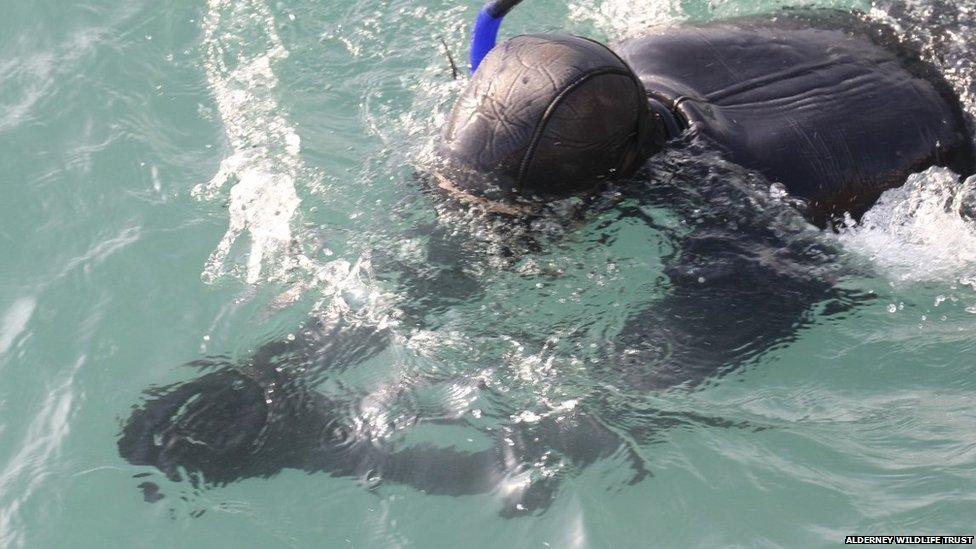
- Published4 March 2014
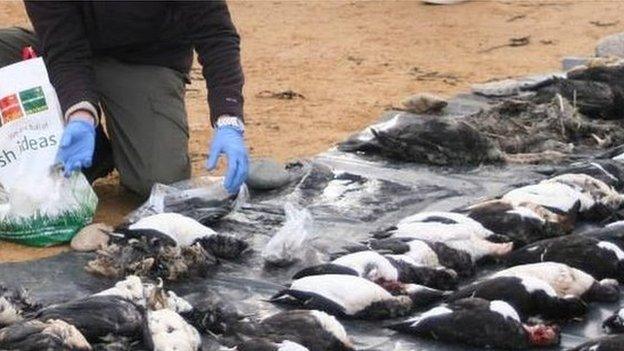
- Published28 January 2014
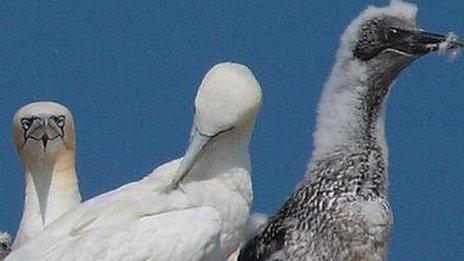
- Published8 January 2014
